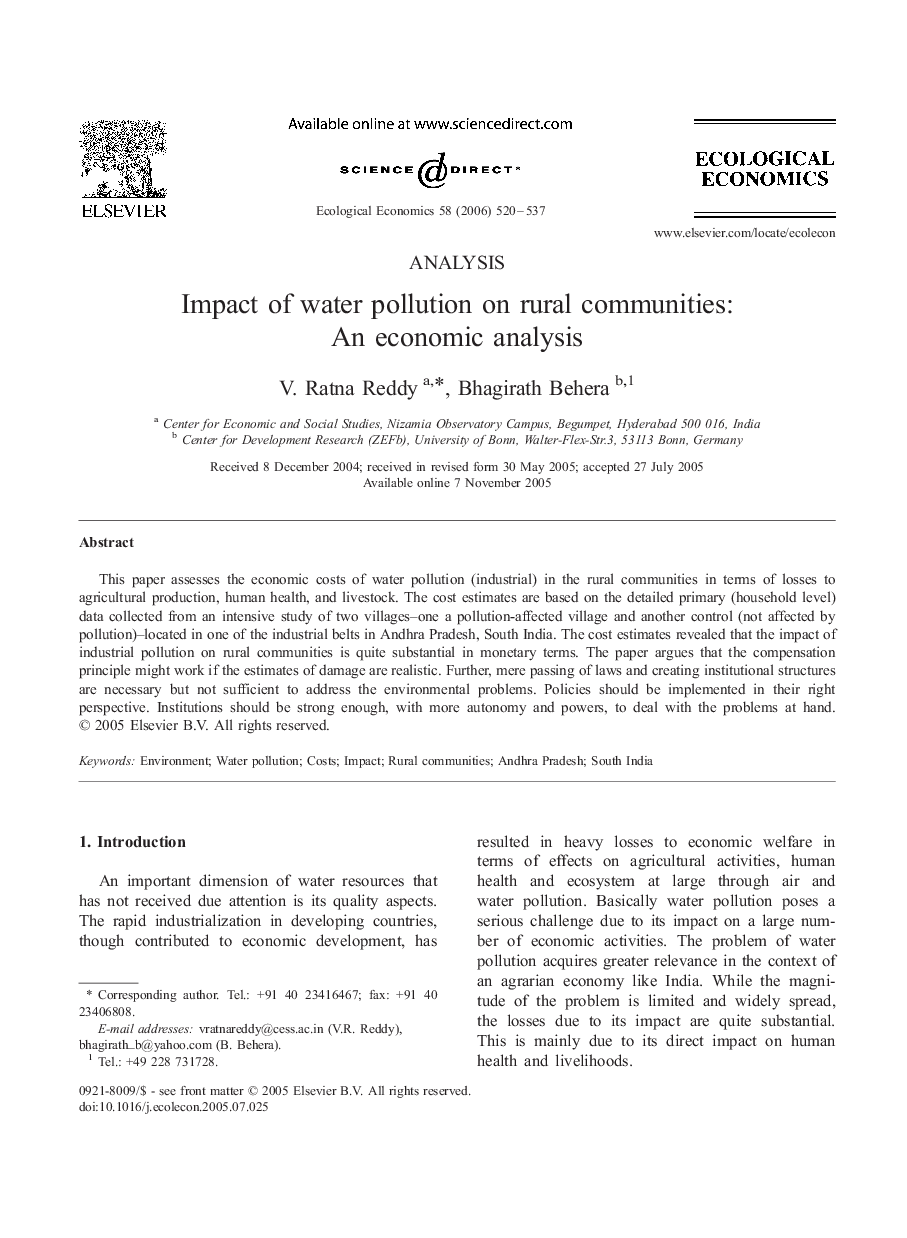| Article ID | Journal | Published Year | Pages | File Type |
|---|---|---|---|---|
| 5052270 | Ecological Economics | 2006 | 18 Pages |
This paper assesses the economic costs of water pollution (industrial) in the rural communities in terms of losses to agricultural production, human health, and livestock. The cost estimates are based on the detailed primary (household level) data collected from an intensive study of two villages-one a pollution-affected village and another control (not affected by pollution)-located in one of the industrial belts in Andhra Pradesh, South India. The cost estimates revealed that the impact of industrial pollution on rural communities is quite substantial in monetary terms. The paper argues that the compensation principle might work if the estimates of damage are realistic. Further, mere passing of laws and creating institutional structures are necessary but not sufficient to address the environmental problems. Policies should be implemented in their right perspective. Institutions should be strong enough, with more autonomy and powers, to deal with the problems at hand.
